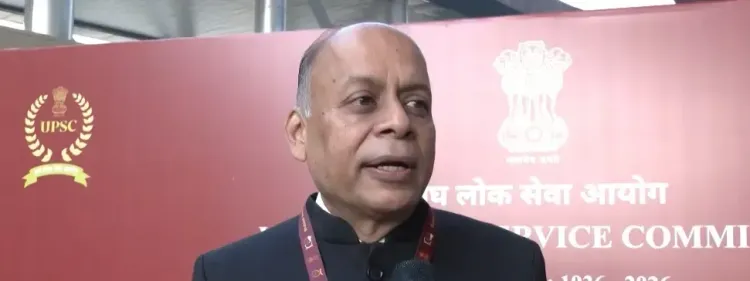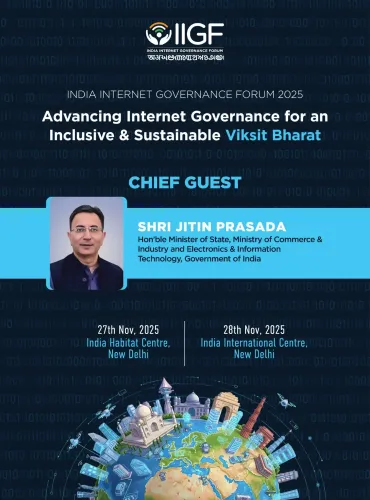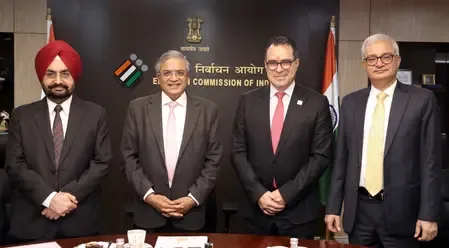How Are Expectations from Civil Servants Changing as India Strives for Development?

Synopsis
Key Takeaways
- UPSC celebrates 100 years of merit-based recruitment.
- Expectations from civil servants are on the rise.
- Adaptability to change is crucial in today's landscape.
- The UPSC is a key player in ensuring fair recruitment.
- Historical context shows the importance of protecting civil services from political influences.
New Delhi, Nov 26 (NationPress) As the Union Public Service Commission (UPSC) prepares to celebrate its centenary from October 1, 2025, to October 1, 2026, marking 100 years of transparent and merit-based recruitment for India’s civil services, UPSC Chairman Ajay Kumar expressed on Wednesday that with India aiming to emerge as a developed economy under the vision of 'Viksit Bharat', the expectations from civil servants have grown considerably.
He further stated that the UPSC is dedicated to recruiting competent candidates who can tackle future challenges effectively.
In an interview with IANS, Ajay Kumar remarked, “The UPSC celebrates a century of merit, integrity, and trust, serving as a beacon of fairness for both aspirants and civil servants. As time progresses, situations evolve. In this fast-paced technological era, we require officers who can adapt swiftly.”
He highlighted that the demand for skilled civil servants transcends mere technological advancements.
“It’s not just about digital transformation; the social landscape is also transforming. The priorities for development and governance frameworks today are markedly different. As India advances toward becoming a developed nation, the expectations from civil servants are continually rising,” he noted.
The UPSC, India’s foremost constitutional authority, is responsible for the recruitment of top government officials through a fair and competitive examination process.
The Commission will commemorate a century of its establishment on October 1, 2026. Established by India’s founding leaders as a guardian of meritocracy, the UPSC has been instrumental in the recruitment, promotion, and disciplinary oversight of Central Civil Services. Its evolution over the past century reflects not only the development of the institution but also India’s unwavering commitment to fairness, accountability, and good governance.
The concept of creating an independent body for civil servant recruitment began to take form before Independence. The Government of India Act, 1919, initially introduced this provision. Subsequently, in October 1926, the Public Service Commission was established following the recommendations of the Lee Commission (1924), which stated: “Wherever democratic institutions exist, experience has demonstrated that to ensure an efficient civil service, it is crucial to safeguard it from political or personal influences and provide stability and security—essential for its role as an impartial and efficient governance tool.”









